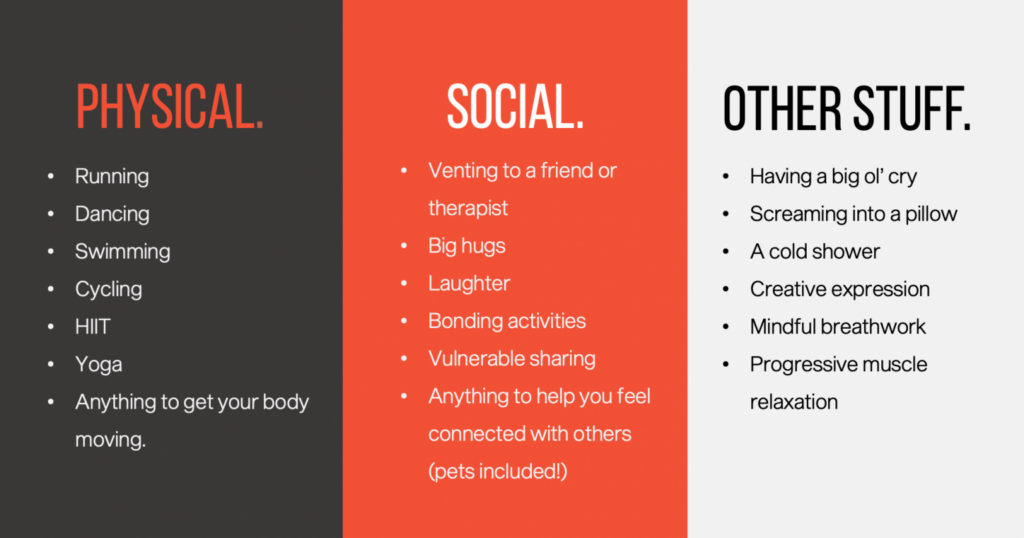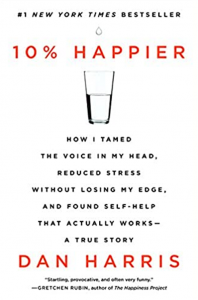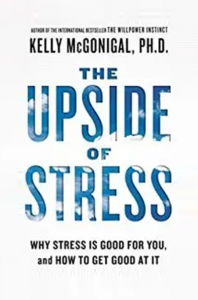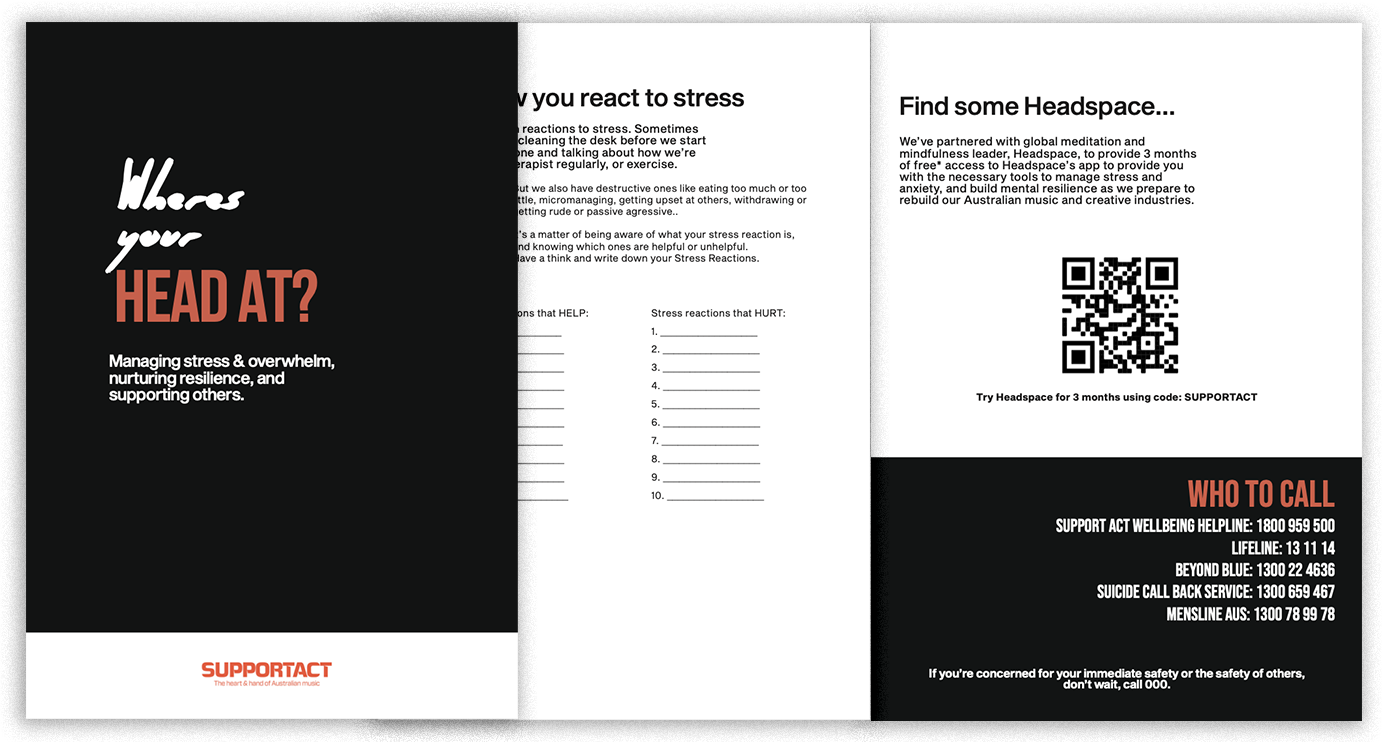Choose an Option
WHAT IS STRESS?
“The pressures are relentless – you’d finish your gig and you would have an hour to play before you went to bed… Within your exhaustion, both physical and mental, you would fall asleep for the potential 3-5 hours before you’d have to get up and do it again. ” Howard Freeman [Roadie & Co-founder of Crew Care]
Stress is a natural part of life. It is your body’s way of dealing with any kind of challenge or demand. It works by switching on the sympathetic nervous system (which you might know better as the “fight or flight response”) to help mobilise your body and get you prepped and ready for action. A little bit of stress in life isn’t a bad thing – in fact, in energises us and motivates us to get important tasks done. Unfortunately, with busy, high-pressure lives in the music industry, we spend way too much time in a state of stress, which becomes taxing on our bodies and minds, and eventually leads to burnout.
SIGNS & SYMPTOMS
Stress can show up in a variety of ways in the body and mind. Here are a few symptoms to be on the lookout for…
- PHYSIOLOGICAL SYMPTOMS
- Increased heart rate
- Muscle tension
- Rapid breathing
- Raised blood pressure
- Stomach ache/nausea
- Heightened sensory awareness
- PSYCHOLOGICAL SYMPTOMS
- Emotional distress
- Overthinking
- Panic / Anxiety
- Feeling overwhelmed
- Catastrophising
- Feeling jumpy, nervous & on-edge
It’s important to note that stress can look and feel similar to heaps of symptoms for a range of physical and mental health conditions. It can be a good idea to head to your GP for a check-up and let them know how stress is impacting you.

FATIGUE MANAGEMENT.
For people working in the music industry, particularly for touring artists, engineers and road crew, irregular working hours and intense schedules can mean fatigue comes with the territory.
Here’s are a few tips
1.
Understand your sleep, rest and recovery needs and obtain adequate rest and sleep away from work.
2.
Take a break or short nap, stay hydrated, do some stretching or physical exercise, adjust the work environment if you can (lighting, temperature).
3.
Monitor your level of alertness and concentration while you are at work
4.
Look out for signs of fatigue in the people you work with.
5.
Chat to your supervisor or manager if you feel like your level of fatigue will pose a health and safety risk, e.g. because of a health condition, excessive work demands or personal circumstances.
HOWARD FREEMAN TALKS ABOUT THE TOLL OF STRESSORS WHEN IT COMES TO LIFE ON THE ROAD
TIPS FOR HANDLING STRESS
Prioritise what’s important.
Make time in your life to do the things that are important to you, that move you towards your goals, and that help you live aligned with your values. It can be a good idea to write these tasks down in a calendar or diary – prioritizing the most important tasks. Don’t forget to include time to maintain the meaningful relationships in your life as well as time to relax and recharge. Sometimes just setting yourself three achievable tasks to do per day can give you a sense of purpose and reduce feelings of stress and overwhelm.
Practice saying “No”.
You only have so many hours in the day and sometimes that means saying no to things that don’t align with your values or that you don’t have the time or energy to take on. We can often take on tasks to avoid disappointing others or feel accepted. Practice saying “no” to requests that are unreasonable and that will overwhelm you. To help get clear on what is and what isn’t reasonable, chat to a close friend or therapist. As yourself “What is reasonable?” given where you’re at and the situation at hand.
Try not to take things personally.
Understand that stress can make you more sensitive in reacting to others and more inclined to take things personally. When other people are stressed, they can also act irrationally or unkindly – it’s not personal. Normalise expressing and discussing your thoughts and feelings with other people – particularly if those people are at the source of your stress and agitation. Communication can help to defuse anger and frustration and air out tensions, so that they don’t turn into long-term grudges, contempt and resentment.
Move on. Don’t dwell on the past.
Thinking about past experiences which in turn, trigger feelings of guilt, remorse and regret cannot change anything, and they make the present difficult by affecting your mood and sapping your energy. Develop a more mindful relationship with your thoughts and feelings, so that you’re better able to notice when certain unhelpful thoughts and uncomfortable emotions arise. Learn to forgive yourself for past mistakes. If you find yourself dwelling on a situation that makes you feel angry, sad or guilty, try not to ruminate on this situation or desperately try to push the feelings away. Instead, simply acknowledge and label the emotion, “I’m feeling sad right now, and that’s ok” which can help diffuse it’s power over you. Healthy distractions can also be useful, like moving your body, connecting with a friend, or doing something fun and immersive.
Identify your “Stress Situations”.
Get clear on events, situations or relationships that leave you emotionally drained. Can you reduce or eliminate any of these from your life at all? If you can’t, take the opportunity when they show up, to practice your stress reduction techniques, keeping notes on what types of techniques are the most effective and useful in which situations.
STRESS REDUCTION TECHNIQUES
PRACTICE MINDFULNESS
This is where you press pause on everything that’s going on inside and outside your head and allow yourself to be present in the moment, without making any judgements, good or bad.
Notice 5 Things
This little mindfulness exercise can help you centre yourself, engage your senses and connect with your immediate environment. Practice it regularly – particularly in moments when you feel yourself getting hijacked by overwhelming or stressful thoughts or feelings.

NOTICE 5 THINGS.
1.
Pause for a moment.
2.
Look around and notice five things you can see. Name them.
3.
Listen carefully and notice four things you can hear. Name them.
4.
Notice three things you can feel – against your skin or body. Notice two things you can smell and one thing you can taste.
Mindful breathing
For one whole minute, close your eyes and notice your breathing. Focus your full attention, allowing your focus to drift back to the breath when it inevitably wanders. Feel your breath as it comes in through the nostrils. Notice how your chest and belly rise and fall with each inhale and exhale.
Mindful walking
Concentrate on soaking in the present moment as you walk. Feel the ground under your feet, notice your breathing. See the colours and textures that surround you, notice any sounds filling the space, and smells in the air. Give yourself permission to be fully absorbed in the world around you.
TAKE A BREATHER (VIDEO & GUIDED AUDIO)
HOWARD FREEMAN TALKS ABOUT THE TOLL OF STRESSORS WHEN IT COMES TO LIFE ON THE ROAD
EAT WELL & EXERCISE
Exercise
Gentle, low-impact exercise such as walking, swimming and cycling are good to relieve stress. Meditation, yoga and dance are also powerful stress busters. The trick is to find a workout that suits you best that you can commit to regularly. Remember, something is better than nothing, so even making time for a 15-min walk or a 10-min stretch a few times a week can have awesome benefits.
Eat well
Intentionally eating a healthy diet, packed full of water, fresh fruit and vegetables does wonders for the body and mind. Also, be mindful of how much you’re reaching for the caffeine, drugs, alcohol and junk food. Try to make some of your mealtimes a mindful experience, where you take your time and allow yourself to be present with your food and enjoy its tastes and textures.
RECREATION & RELAXATION
Hobbies that focus your attention and allow you to be fully immersed and “in flow” are also great stress relievers. Take up a new activity, unrelated to work – something that gives you a sense of achievement and satisfaction. Also make a list of activities that soothe and relax you – whether it’s going for a walk, watching a favourite tv show, listening to a record or having a warm shower. Allow these activities to be your go-to’s when you need to wind down and quiet your busy mind.
DE-STRESS YOURSELF
When your body and mind are awash with stress, it can be helpful to find a physical or social outlet that allows for your nervous system to regulate itself again. This can often happen through methods that involve grounding, movement and connection. Below are a few strategies that have proven to be helpful in relieving stress. Try a few on for size and see what works best for you.

HOW TO TAKE ACTION
If you are experiencing chronic or overwhelming stress it can be good to talk about it and even get some support to manage it. Here’s what you can do if you or someone you care about is experiencing stress & overwhelm.
Open up and talk about it. Whilst it can be uncomfortable to have convos about topics like stress and mental health, it is often the first step to facing it, and getting help.
Ask for help and support as soon as you notice yourself struggling. Reach out to family and friends, or give us a call on the Wellbeing Helpline ~ a helpline dedicated to to supporting folks working in the Aussie music industry. It’s free, confidential and available 24/7.
See (or encourage someone to see) a GP to discuss symptoms and support options. (Aussie residents are also eligible for the Mental Health Care Plan, which can save you a good chunk of money off sessions with a registered psychologist).
Find a mental health practitioner that’s right for you (ask around, get on Google, or ask your GP for recommendations)
Check out these free resources:
Remember: If you, or someone you care about, is in crisis or at immediate risk, dial 000 now.
HELPFUL APPS TO HELP YOU MANAGE STRESS & OVERWHELM
ARTICLES ABOUT STRESS
WANT MORE? GIVE THESE A LISTEN…
How to Manage Acute Stress | 10 MIN
The Mindful Kind
The Mindful Kind is a podcast that equips listeners with effective strategies to navigate their busy lives better. Short but effective, each episode leaves you with actionable advice to incorporate within your day.
Listen to The Mindful Kind here
The Dutch art of doing less to release stress and achieve more with Olga Mecking | 46 MIN
Mental – The Podcast to Destigmatise Mental Health
Mental – The Podcast To Destigmatise Mental Health was created by co-host Bobby Temps to break down mental health stigma and encourage other bring attention to staying mentally healthy. This episode explores when less is more, by following a wellness trend asking us to do less and achieve more.
Listen to Mental -The Podcast to Destigmatise Mental Health podcast here
CHECK OUT OUR STRESS LIVE PANEL + FREE ACTIVITY BOOKLET
On My Mind: Battling with Big Feelings
Everyone feels stressed from time to time, but what can we do when it gets the better of us, and how might Mindfulness offer us a solution.
Holly Norman
Yoga For Stress Relief














